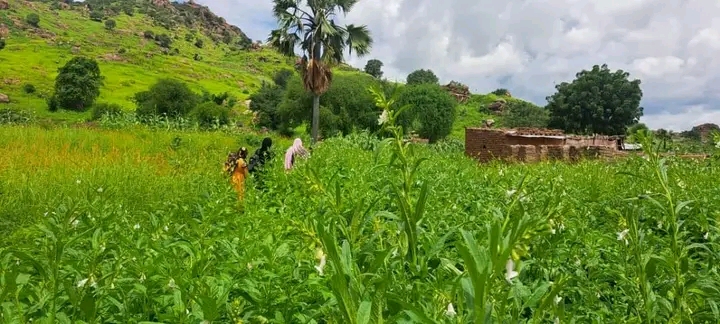Residents of South Kordofan State in western Sudan are struggling to survive under the relentless sound of gunfire and shelling in various neighborhoods. Daily life has become a battle to secure basic necessities for themselves and their children, as they face an escalating scarcity of essential goods and services—including electricity, water, food, and fuel—with some food items already running out.
As armed confrontations continue in the region, the Sudan People’s Liberation Movement–North (SPLM-N) led by Abdelaziz al-Hilu has taken control of the strategic area of al-Dashoul. This development has once again cut off the national road linking Dilling and Kadugli, isolating the cities of South Kordofan and creating a worsening humanitarian crisis. Reports of famine have emerged due to severe shortages in both food and medicine.
Siege and Crises
Hussein Tobin, a resident of Kadugli, told Mashaweer that “the city is suffocating under a prolonged siege that has shut down all entry and exit routes, cutting residents off from other towns in South Kordofan.” He explained that “the humanitarian crisis has exceeded all limits, especially with most health facilities and water stations ceasing operations due to lack of fuel, alongside a severe cash shortage and dwindling currency circulation, as well as dire shortages of food and medicine.”
Tobin added that “continued artillery shelling by the SPLM-N on residential neighborhoods has caused significant casualties and property damage, with many homes destroyed and civilians wounded.”
He noted that the second closure of the national road has exacerbated civilian suffering by halting the supply of food and goods from Dilling and the Nime border area with South Sudan. This has led to cases of malnutrition, especially among children and pregnant women.
Food Shortages
Haroun Mohammedin, a resident of Dilling, told Mashaweer that “people are living under extremely difficult humanitarian conditions due to severe food shortages caused by the road closures.” He also expressed fear of a possible attack on the city by the Rapid Support Forces (RSF), especially with increasing drone strikes that have destroyed homes and resulted in civilian casualties.
“Each passing day adds to our suffering,” said Mohammedin. “We’ve spent everything we had. There’s no one to help us under these conditions. We are under constant pressure, and on most days, we only manage to eat one meal.”
He also noted that a large number of displaced people from Khartoum had previously sought refuge in the relatively quiet city of Dilling, but recent attacks by both the RSF and SPLM-N forced many of them to flee again under dire conditions.
Famine Spreads
Khadija al-Zain, who fled with her family to the Karqal area south of Dilling, explained to Mashaweer that “with the severe shortage of food caused by the siege, prices are rising daily at an unimaginable rate, while most residents have already exhausted their savings.”
Al-Zain expressed her sorrow that the warring parties have ignored repeated international and UN calls not to use starvation and food deprivation as a weapon. “None of these pleas have been heeded,” she said, “as the fighting forces continue to disregard all humanitarian, ethical, and international legal norms.”
She pointed out that the SPLM-N has been launching large numbers of artillery shells at several areas in South Kordofan, causing civilian deaths and widespread destruction.
“Some residents have been forced to collect leaves from the lalob tree to cook with salt and spices as a near-daily meal,” she added, “despite its bitter taste and the difficulty in digesting it at times.”
